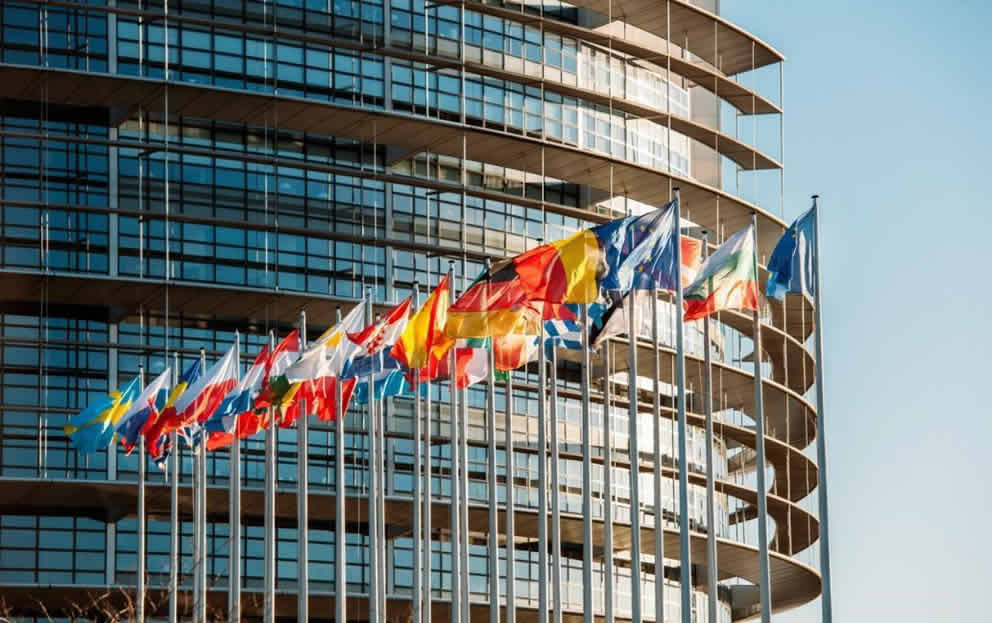While sports are universally popular and connect people all over the world, they also play a significant role in promoting national identity. They allow people to express a natural desire for competition in healthy ways and provide opportunities for nations to come together to enjoy events and celebrate culture. Understanding the role of sports media in fostering a sense of national identity, celebrating cultural heritage, and asserting national identity globally can help you become a more effective journalist.
In this article, we explore the role of sports media in promoting national identity, look at key sporting events, and discuss some challenges and opportunities.
What is sports media?
Sports media encompasses various forms of communication and information dissemination relating to sports. It serves as a crucial platform for reporting, analyzing and broadcasting sports events, engaging a vast audience. This dynamic field entails a diverse range of mediums, including television, radio, print and digital platforms. Sports media provides up-to-date news, captivating narratives, insightful commentary, expert analysis and immersive coverage, bridging the gap between athletes, teams and fans worldwide. It showcases the intensity of competition, the triumphs and the struggles, creating an interactive space where enthusiasts can connect, debate and celebrate their favorite sports, athletes and memorable moments.
Sports media and national identity
Sports media plays a crucial role in shaping national identity. It serves as the conduit through which the stories, triumphs and struggles of athletes and teams are shared with a global audience. The reach and impact of sports media have grown exponentially in recent years, with technological advancements enabling instant access to live events, interviews, analysis and behind-the-scenes coverage.
Through the lens of sports media, national identity formation takes center stage. The coverage and portrayal of sporting events not only reflect the values and traditions of a nation, but also contribute to shaping its image in the eyes of the world. It is through the storytelling prowess of sports journalists, commentators and broadcasters that the narratives of national pride, unity and cultural identity are woven into the fabric of major sporting events.
As sports enthusiasts gather around their television screens or connect through digital platforms, they become part of a collective experience that transcends borders. Whether it’s witnessing the jubilation of a nation’s football team lifting the World Cup trophy or marveling at the display of national costumes during the Parade of Nations at the Olympics, sports media captures these moments and shares them with audiences around the globe.
The World Cup
The FIFA World Cup is the most widely watched sporting event worldwide, with over one billion global viewers tuning into the last competition. The tournament gives countries from around the globe a chance to compete for the coveted title of world champion, making it a spectacle that unites nations through a common desire to win.
All media carries coverage of the matches but sports journalists in particular play a vital part in ensuring enthusiastic but accurate reporting of the games. They also write bios of individual players, how players’ injuries are affecting the strength of teams and a country’s chances of progressing in the competition. To become a sports journalist, a high level of general academic achievement is required plus a specialist qualification such as the SBU master’s in journalism online. These courses, such as the two on offer at St Bonaventure University, in either Sports Journalism or Digital Journalism, teach students how to achieve accuracy, diversity, fairness, and truth in their reporting. All relevant skills are taught, including podcasting and the use of social media. Experienced professionals and experts in the field also provide input to assist students with their studies.
Journalists must be able to explain the nuances of sports and to provide fans with the latest news about the team they support. Here are some specific examples of how the World Cup promotes national identity.
Uniting people through a love of football
Football, otherwise known as the ‘beautiful game’, holds a special place in the hearts of millions across the world. The World Cup acts as a unifying force, transcending political, social and economic differences to create a shared experience of joy, hope and camaraderie. The tournament becomes a platform where people from various nations can put aside their differences and rally behind their respective teams.
Sports media plays a vital role in capturing and disseminating the passion and excitement that permeate World Cup matches. Through live broadcasts, expert analysis, captivating storytelling and human-interest features, sports media brings the tournament to life, allowing fans to experience the thrill of the game as if they were on the field themselves.
Showcasing cultural diversity
One of the remarkable aspects of the World Cup is its ability to showcase the rich tapestry of global cultures. As teams from different nations compete, their unique styles of play, traditions and footballing philosophies are on display. From the samba-infused flair of Brazilian football to the disciplined precision of German tactics, the World Cup celebrates the diverse approaches to the game that emerge from various national identities.
Sports media plays a crucial role in highlighting these cultural nuances, providing context and fostering understanding among viewers. Through pre-match analysis, player profiles and interviews, sports journalists delve into the cultural backgrounds and influences that shape teams’ playing styles. This storytelling deepens the appreciation for the cultural heritage that teams bring to the tournament, enriching the overall World Cup experience.
Sports media coverage
The comprehensive coverage of the World Cup by sports media creates a sense of shared narrative and collective memory. Whether it’s reliving historic moments, iconic goals or underdog triumphs, sports media ensures that these stories become embedded in the national consciousness. From the ecstatic celebrations that erupt in the streets of a winning nation to the heartbreak and introspection that follows a defeat, sports media captures the emotional roller coaster of the World Cup and connects individuals to their national identity.
Furthermore, sports media coverage during the World Cup goes beyond the matches themselves. It extends to documenting the preparation, training camps, player profiles and fervent support of fans. The human-interest stories that emerge from these narratives provide a glimpse into the lives and aspirations of athletes, creating role models and inspiring future generations.
The Olympic Games
The Olympic Games, held every four years, represent the pinnacle of athletic achievement and global unity. Much like the World Cup, the Olympics bring together athletes from diverse nations, cultures and backgrounds to compete on a grand stage. Beyond the quest for medals, the Olympics serve as a platform for celebrating cultural identity and promoting a sense of national pride. Here are key examples of how it does this.
Olympic Games symbolism
The Olympic Games symbolize ideals of peace, friendship and fair play. Rooted in ancient Greek traditions, the modern Olympics continue to embody the values of harmony and global cooperation. The interlocking rings, representing the five continents, signify the coming together of nations through sport. Sports media plays a pivotal role in capturing the spirit of the Olympics and showcasing the diverse cultural identities of participating nations. Through extensive coverage of opening and closing ceremonies, sports competitions, athlete profiles and behind-the-scenes stories, sports media brings the Olympics into the living rooms of millions worldwide.
Promoting national pride and unity
For athletes representing their respective nations, the Olympics provide an unparalleled opportunity to showcase their talent and bring glory to their homeland. The success of individual athletes and national teams becomes a source of immense pride and unity for the entire nation. Through sports media, these stories of triumph and dedication resonate with audiences, evoking a shared sense of national identity and inspiring future generations.
Sports media coverage during the Olympics goes beyond the sporting achievements themselves. It highlights the cultural traditions, customs and historical narratives that make each nation unique. By showcasing the diverse backgrounds of athletes, sports media encourages viewers to appreciate and respect different cultures, fostering a sense of global citizenship.
Sports media coverage
The Olympics provide a platform for nations to express and preserve their cultural heritage. From the vibrant national costumes worn during the Parade of Nations to the incorporation of traditional music and dance into opening ceremonies, the Games become a celebration of diversity and cultural exchange.
Sports media plays a vital role in highlighting these cultural elements, ensuring that the narratives of each nation are respectfully and accurately represented. By delving into the stories behind the athletes and their cultural backgrounds, sports journalists create connections between sporting achievements and the rich tapestry of a nation’s heritage. This storytelling helps viewers develop a deeper appreciation for the cultural diversity that exists on the global stage of the Olympics.
The impact of the digital era on sports media
In the digital age, sports media has witnessed a significant transformation, expanding its reach and engagement with audiences around the world. The rise of social media platforms, online streaming services and mobile applications has revolutionized how sports events are consumed and shared. This shift has had a profound impact on promoting national identity through sports.
Social media and sports fandom
Social media platforms, such as Twitter, Facebook, Instagram and YouTube, have become virtual stadiums where fans can connect, share their passion, and actively participate in the sporting experience. Hashtags, emojis and live updates enable fans to engage in real-time discussions, express their support for their favorite teams, and celebrate their national identity.
Sports media harnesses the power of social media to amplify the narratives of national identity during major sporting events. Memorable moments, inspiring performances and cultural representations are quickly shared and celebrated, fostering a sense of community among fans across borders. The accessibility of social media platforms allows sports media to reach a global audience, transcending geographical limitations and spreading the messages of national pride and cultural celebration.
Sports media’s role in shaping conversations about national identity
In their capacity as primary narrators of sporting events, sports media professionals have the important duty of shaping the narratives that revolve around national character. The choice of storylines, the perspective given to events, and the portrayal of athletes all wield considerable influence over public perception, either by perpetuating cultural biases or by challenging them. In this regard, sports media possesses the power to reinforce stereotypes, bring attention to neglected perspectives, and foster inclusivity.
The participation of sports media professionals, including journalists, commentators and analysts, is paramount in ensuring that the coverage of major sports events accurately represents the diverse cultures and identities of the nations involved. By conducting comprehensive interviews, providing historical context, and shedding light on the personal lives of athletes behind the scenes, sports media has the capacity to deepen the comprehension of national identity beyond superficial observations.
Concerns regarding sports media’s role in promoting national identity
While sports media’s role in promoting national identity has numerous positive aspects, it is essential to acknowledge potential drawbacks. The intense competition and commercialization of sports can sometimes overshadow the celebration of cultural identity. The focus on medal counts, individual achievements and commercial endorsements may inadvertently diminish the significance of cultural representation and unity.
Sports media must strike a balance, ensuring that the narratives of national identity are not overshadowed by profit-driven agendas. By placing equal emphasis on the cultural significance of sporting events and the stories of athletes’ journeys, sports media can uphold the values of diversity, inclusivity and national pride. Here are some additional challenges concerning sports media and national identity.
Political influences
Sports and politics have often intersected, with nations leveraging major sporting events as platforms for political messaging or propaganda. Political influences can seep into sports media coverage, shaping narratives to align with certain ideologies or agendas. In such instances, the celebration of national identity may become entangled with political motivations, compromising the authenticity and inclusivity of the narrative.
It is essential for sports media to maintain journalistic integrity and independence, separating sports coverage from political biases. By prioritizing accurate and unbiased reporting, sports media can ensure that the focus remains on the cultural significance and sporting achievements that unite nations.
Balancing commercial interests and national identity
In an era of commercialized sports, balancing the interests of sponsors, advertisers and media corporations with the promotion of national identity can be a delicate task. Commercial considerations may sometimes overshadow the celebration of cultural diversity, leading to a standardized and homogenized portrayal of national narratives.
Sports media professionals face the challenge of striking a balance between the commercial demands of the industry and the responsibility to foster a genuine representation of cultural identity. By resisting the pressures of commercialization and prioritizing the authenticity of national narratives, sports media can ensure that the promotion of national identity remains true to its purpose.
Ensuring inclusivity
Sports media has a responsibility to tackle biases, challenge stereotypes and promote inclusivity in the portrayal of national identity. Historically marginalized groups, such as women, ethnic minorities and underrepresented nations, deserve equal recognition and representation within the sporting landscape.
By diversifying sports media personnel, encouraging diverse perspectives and providing platforms for underrepresented voices, the industry can work toward more inclusive coverage. This entails celebrating the achievements of athletes from all backgrounds, highlighting their contributions to national identity, and actively challenging discriminatory narratives.
How sports media can affect social change
Here are some ways that sports media can be a catalyst for social change.
Inspires social movements
Throughout history, sports and athletes have played a significant role in inspiring social change. From Muhammad Ali’s activism against racial inequality to the raised fists of Tommie Smith and John Carlos at the 1968 Olympics, sports have served as powerful platforms to raise awareness about social injustice. Sports media plays a crucial role in amplifying these messages, providing a voice to athletes and movements striving for a more inclusive society.
Raises awareness
Sports media has the power to address societal issues through its coverage and storytelling. By shedding light on challenges such as gender inequality, racism, LGBTQ+ rights and accessibility, sports media can spark important conversations and contribute to the dismantling of systemic barriers.
When sports media highlights athletes who overcome adversity or advocate for social change, it sends a powerful message of resilience and inspires individuals to act. By focusing on the efforts of athletes to make a positive impact beyond the field, sports media reinforces the notion that sports can be a vehicle for social progress.
Conclusion
Sports have the unique ability to bridge divides and bring people together. Sports media can foster dialogue and understanding by showcasing the shared passion for sports among individuals from different backgrounds, cultures and nations. It can highlight stories of sports diplomacy, where athletes and teams build bridges and promote mutual respect and understanding.
By highlighting moments of camaraderie, sports media can contribute to breaking down stereotypes and promoting a more inclusive and empathetic society. Through thoughtful storytelling, sports media can transcend national boundaries and facilitate cross-cultural dialogue, encouraging viewers to embrace diversity and celebrate the common human experiences that sports embody.





















